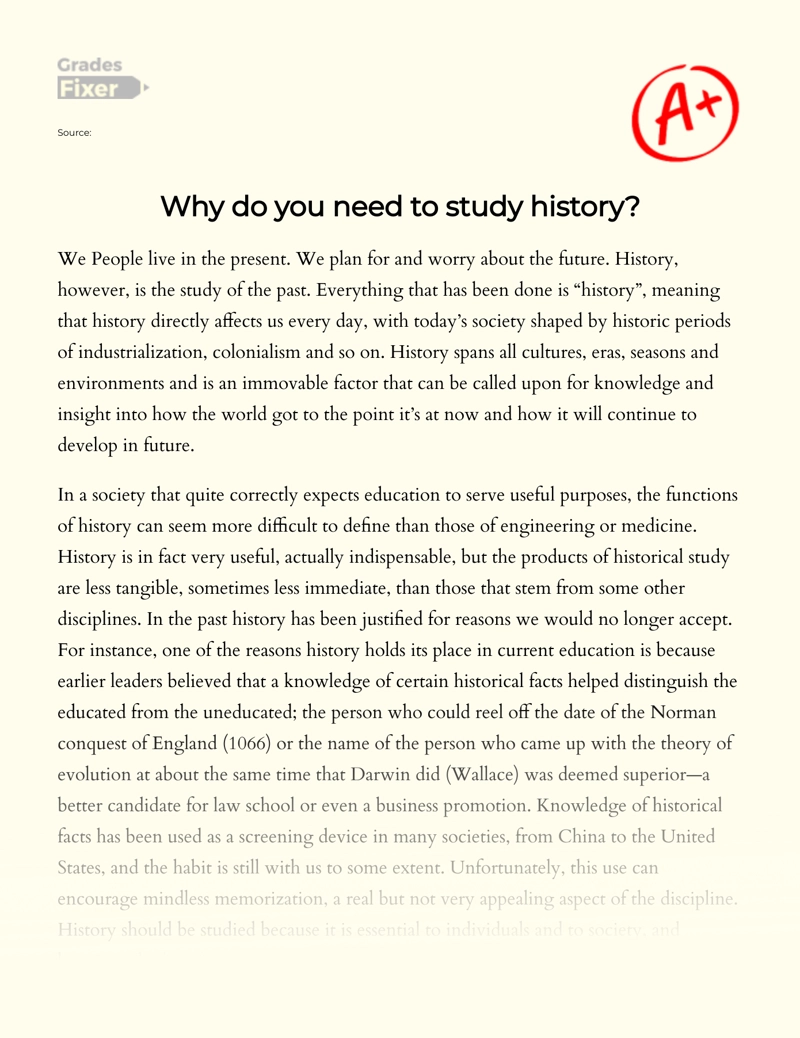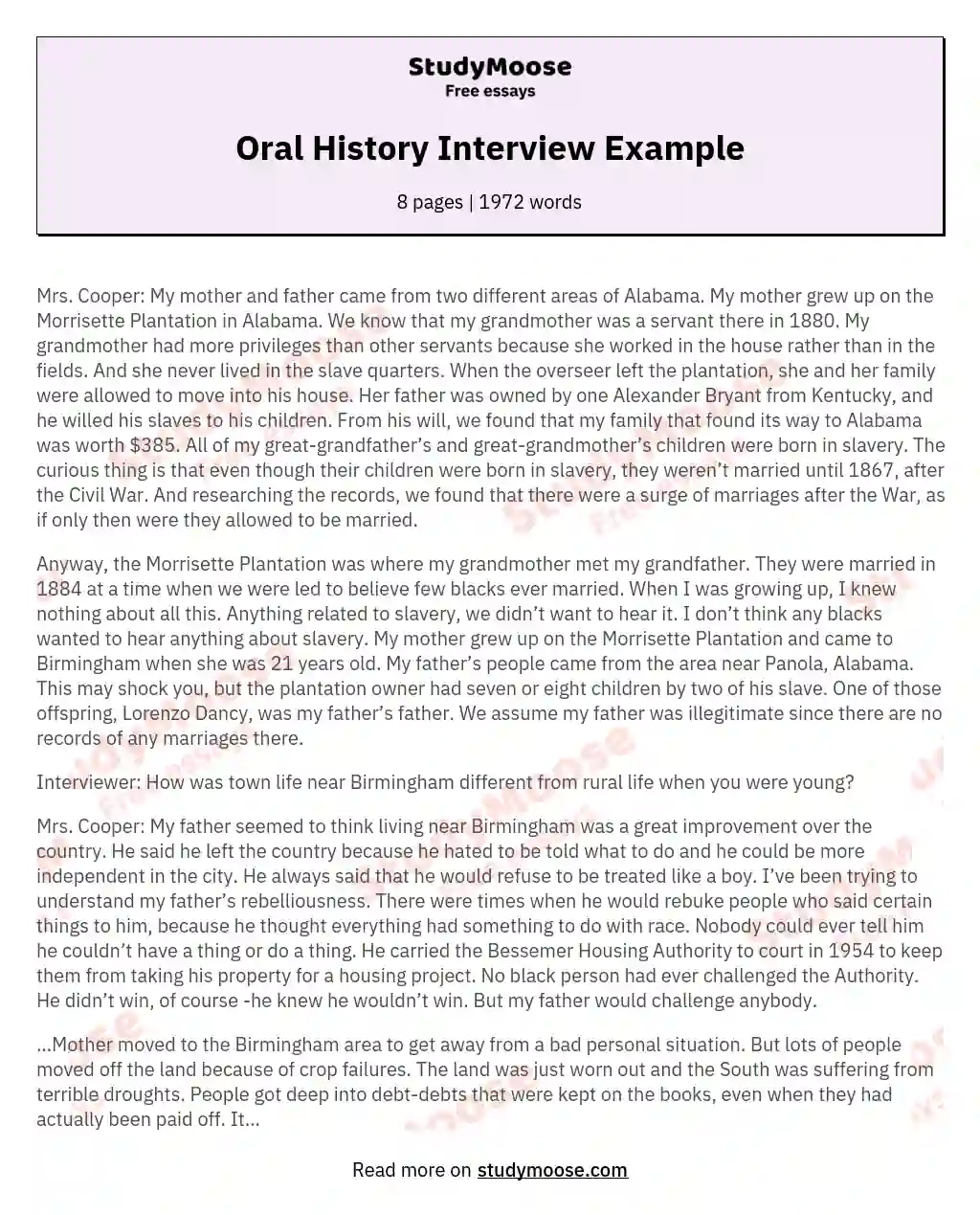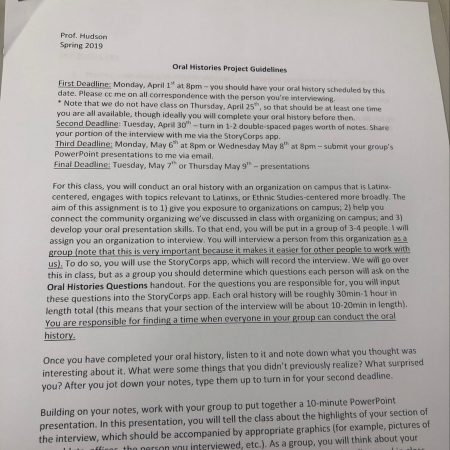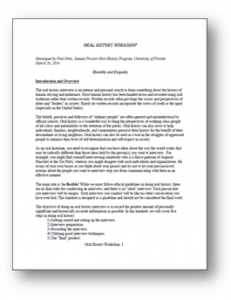Oral history is the study of the past through the accounts of the people who lived it. It involves collecting and preserving the memories and experiences of individuals through interviews and other forms of storytelling. Oral history can provide valuable insights into the lives and perspectives of people who may not have left behind written records, and can help to fill in gaps in our understanding of the past.
One example of an oral history project is the Veterans History Project, run by the American Folklife Center at the Library of Congress. This project collects and preserves the personal accounts of veterans from World War I to the present day. Through interviews with veterans, the project aims to document the experiences and sacrifices of those who have served in the military.
Another example of an oral history project is the StoryCorps project, which collects and shares the stories of everyday people from all walks of life. These stories are recorded and preserved in the American Folklife Center at the Library of Congress, and are also shared through various media outlets, including radio and podcasts.
One way to approach an oral history paper is to conduct an oral history interview yourself and use it as the basis for your research. This can involve finding a person who has firsthand knowledge of the topic you are interested in and conducting an in-depth interview with them. You can then use the information gathered from the interview to write your paper, using quotes from the interviewee to illustrate their experiences and perspectives.
Alternatively, you could conduct a literature review of existing oral history projects or sources and use them to inform your paper. This could involve analyzing the themes and patterns that emerge from different oral history accounts, and considering how they compare to written historical accounts of the same time period or event.
Regardless of the approach you take, it is important to be mindful of the limitations of oral history as a source. Oral history accounts are often subjective and may be influenced by the memory and perspective of the interviewee. It is important to consider the potential biases and limitations of oral history accounts and to triangulate them with other sources whenever possible.
Overall, oral history can provide a rich and valuable source of information about the past. By collecting and preserving the personal accounts of individuals, we can gain a deeper understanding of the experiences and perspectives of those who lived through history.
Oral history is the study and collection of historical information through recorded interviews with people who have firsthand knowledge of past events. These interviews, which are conducted by historians or trained interviewers, can provide valuable insights and perspectives on events that may not be recorded in written documents or other official records. Oral history can be a powerful tool for understanding the past, as it allows individuals to share their personal experiences and memories of significant events in their own words.
One example of an oral history project is the Veterans History Project, which was initiated by the American Folklife Center at the Library of Congress in 2000. This project collects and preserves the personal accounts of veterans from World War I to the present, with the goal of providing a more complete and accurate record of the experiences of those who have served in the military.
To create an oral history paper, a researcher would first need to identify a topic of interest and locate potential interviewees who have relevant knowledge and experiences. These interviewees could be veterans, civil rights activists, immigrant community members, or any other group of people who have firsthand knowledge of a particular event or period in history.
Once potential interviewees have been identified, the researcher should develop a set of questions to guide the interview process. These questions should be carefully crafted to elicit detailed and informative responses, and should focus on specific aspects of the topic being studied. The researcher should also ensure that the questions are open-ended and non-leading, in order to allow the interviewee to share their own experiences and perspectives in their own words.
After conducting the interviews, the researcher should transcribe the recorded conversations and carefully review the transcripts to identify key themes and patterns. These themes and patterns can then be used to inform the structure and content of the oral history paper.
In addition to transcribing and analyzing the interviews, the oral history paper should also include a thorough historical context section, which provides background information on the topic being studied. This might include a discussion of relevant political, social, and cultural events that occurred during the period being examined, as well as an overview of any relevant historical debates or controversies.
Overall, an oral history paper can be a powerful and illuminating way to understand and explore the past. By collecting and analyzing the personal experiences and memories of individuals who were directly involved in significant events, researchers can gain valuable insights and perspectives that may not be available through other sources.





